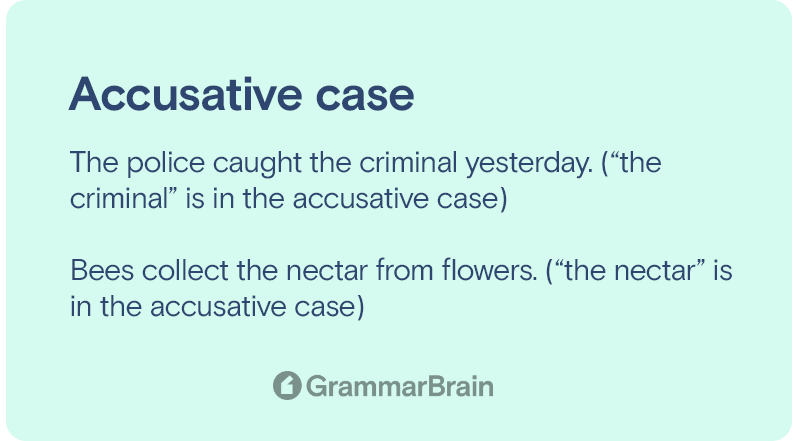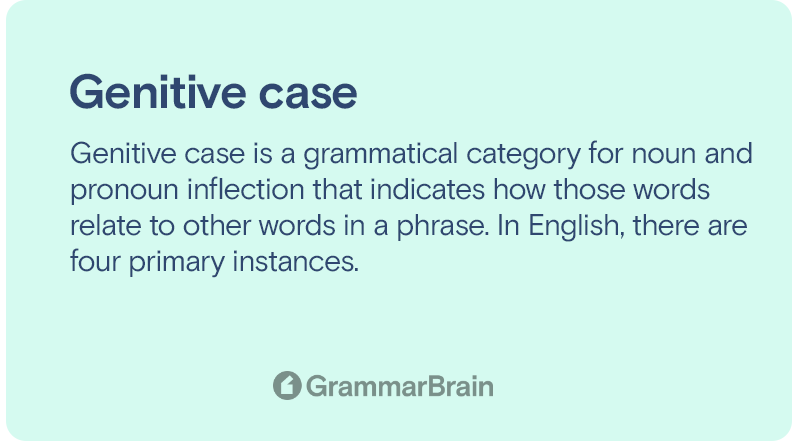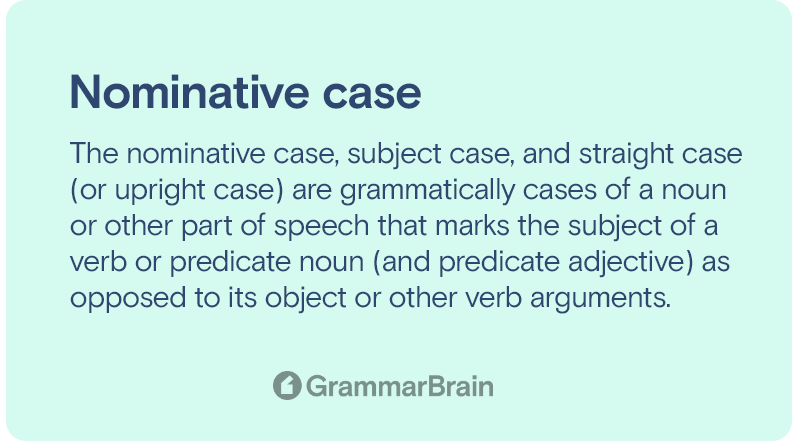

What is the accusative case? The term “accusative case” would be more familiar to the non-English speaking population, predominantly Russian and German. In the English language, accusative cases play an important role in a sentence. The term may sound complicated, but it is very simple to understand as it describes a fundamental grammatical property.
First, let’s understand the meaning of an accusative case.
Before you learn about the accusative case, understand the different cases in the English language.
A case in the English language pertains to how a word changes and is used in a sentence. Cases tell you how a word stands in relation to other words in a sentence syntactically.
Typically, there are three cases in the English language – the possessive case, the subject case, and the object case.
Here is an example:
In this sentence, “I” is the subject case, “me” is the object case and “mine” is the possessive case.

Like mentioned, the accusative case reveals the direct object on which an action is performed. This case is not commonly used in English, but here is an example to understand the concept –
To discover the accusative case in the sentence, ask the question “What” or “Whom” does the verb affect? The verb in the sentence is “walked.”
So ask the question, “Walked what or whom?”. The answer is the object of the sentence “the dog,” which is in the accusative case.

Here are some examples of sentences in the accusative case –
In this sentence, both “nectar” and “flowers” are objects. However, “nectar” is the direct object of the verb “collect”. On the other hand, “flowers” is an indirect object. So, “the nectar” is in the accusative case.
As mentioned earlier, the accusative case is not common in the English language. Other languages use this grammatical case to form sentences.
For the sake of convenience, the English language uses objective case to define accusative cases along with dative cases.
A dative case reveals the indirect object of a verb, the object which receives the direct object. Here is an example:
The direct object in the sentence is “water”. Now ask yourself these questions:
In other languages, some prepositions can assume the accusative case.
Take German for example. German prepositions like “um”, “ohne”, “gegen”, “fur”, “entlang”, “durch” and “bis” take the accusative case.
In comparison, the prepositions in the English language assume the objective case. For example, you don’t say “With I”. Instead, the correct way to say it is “With me”, which is in the objective case.
Here are some examples of prepositions in the objective case.
Here are some rules regarding the use of accusative case –

Accusative cases are uncommon in the English language.
How many cases are there in English?There are three primary cases in English – subject case, object case, and possessive case.
Can indirect objects be in the accusative case?No, only direct objects of the verb in a sentence can be in the accusative case.
What is the use of accusative case?The accusative case answers the question “Whom” or “What” was directly affected by the verb in a sentence.
How does a transitive verb interact with the accusative case?In English, the case used to describe the immediate object on which the transitive verb acts.
What is an accusative object?An accusative object is a verb that renames the action.
Inside this article

Fact checked:
Content is rigorously reviewed by a team of qualified and experienced fact checkers. Fact checkers review articles for factual accuracy, relevance, and timeliness. Learn more.

About the author
Dalia Y.: Dalia is an English Major and linguistics expert with an additional degree in Psychology. Dalia has featured articles on Forbes, Inc, Fast Company, Grammarly, and many more. She covers English, ESL, and all things grammar on GrammarBrain.